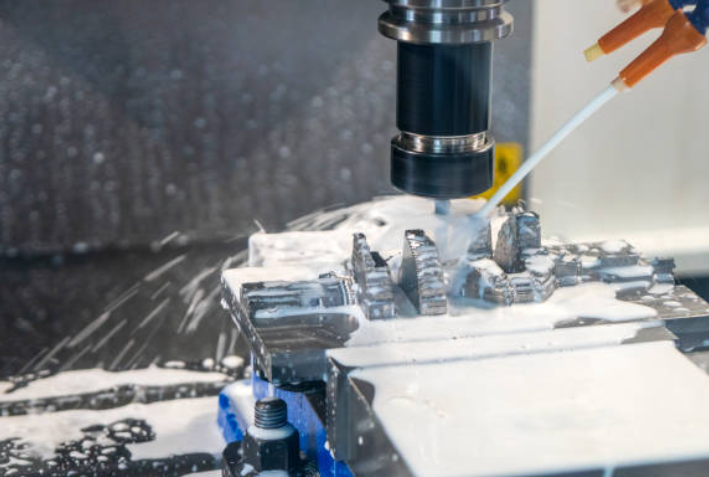Introduction
CNC (Computer Numerical Control) mold making machines have transformed the mold manufacturing industry by providing unmatched precision, efficiency, and versatility. This guide will explore the fundamentals of CNC mold making machines, their advantages, applications, and how they are revolutionizing the production of high-quality molds.
Understanding CNC Mold Making Machines
What is a CNC Mold Making Machine?
A CNC mold making machine is a computer-controlled device that automates the process of mold manufacturing. Using pre-programmed software, these machines precisely cut, shape, and finish molds from various materials.
How CNC Technology Works
CNC technology involves using a computer to control machining tools such as drills, lathes, mills, and routers. The machine follows a coded programmed instruction to perform a sequence of operations with high accuracy and consistency.
Advantages of CNC Mold Making Machines
Precision and Accuracy
CNC machines can achieve extremely tight tolerances, ensuring each mold is manufactured to exact specifications. This level of precision is critical for producing high-quality, consistent parts.
Efficiency and Speed
CNC machines can operate continuously, reducing production time and increasing output. They also minimize human error, further enhancing efficiency.
Versatility
CNC mold making machines can handle a wide range of materials, including metals, plastics, and composites. They are capable of producing complex shapes and intricate details that would be difficult or impossible with manual machining.
Repeatability
Once a CNC machine is programmed, it can produce identical molds repeatedly with the same precision. This repeatability is essential for large-scale manufacturing.
Reduced Labor Costs
CNC automation reduces the need for manual labor, lowering overall production costs and allowing for more complex and intricate designs.
Applications of CNC Mold Making Machines
Injection Molds
CNC machines are extensively used to create molds for injection molding processes. These molds are essential for producing plastic parts in various industries, including automotive, medical, and consumer goods.
Blow Molds
Blow molding, which produces hollow plastic parts like bottles and containers, relies on CNC-machined molds to ensure precision and uniformity.
Compression Molds
CNC technology is used to manufacture compression molds for creating rubber, silicone, and other elastomeric products. These molds require precise cavities to ensure proper part formation.
Rotational Molds
CNC machines produce molds for rotational molding processes, which create seamless, hollow parts such as tanks and large containers.
Thermoforming Molds
Thermoforming molds, used to shape plastic sheets into detailed forms, benefit from CNC machining for their precision and ability to handle complex shapes.
Key Components of CNC Mold Making Machines
Machine Bed
The bed is the foundation of a CNC machine, providing stability and support for the workpiece and tooling.
Spindle
The spindle holds and rotates the cutting tools, performing the actual machining operations. High-speed spindles are essential for achieving fine details and smooth finishes.
Control Panel
The control panel is the interface between the operator and the CNC machine, allowing for programming, monitoring, and adjustments during the machining process.
Tool Changer
An automatic tool changer allows the CNC machine to switch between different tools during a single operation, increasing efficiency and reducing downtime.
Cooling System
The cooling system prevents overheating and ensures optimal cutting conditions by maintaining the temperature of the workpiece and tooling.
The CNC Mold Making Process
Design and Programming
The process begins with designing the mold using CAD (Computer-Aided Design) software. The design is then converted into a CNC program (G-code) that guides the machine's operations.
Material Selection
The appropriate material for the mold is selected based on the requirements of the final product. Common materials include steel, aluminum, and various alloys.
Machining Operations
The CNC machine performs a series of operations such as milling, drilling, and cutting to shape the mold. Each step is meticulously controlled to achieve the desired specifications.
Finishing and Inspection
After machining, the mold undergoes finishing processes such as polishing and coating to enhance its durability and performance. Rigorous inspection ensures the mold meets all quality standards.
Maintaining CNC Mold Making Machines
Regular Cleaning
Keeping the machine clean prevents debris buildup, which can affect precision and lead to wear and tear on components.
Routine Maintenance
Scheduled maintenance checks for wear on parts, lubrication of moving components, and calibration of the machine to ensure ongoing accuracy.
Software Updates
Regularly updating the CNC software ensures the machine operates efficiently and takes advantage of the latest technological advancements.
FAQ - Frequently Asked Questions about CNC Mold Making Machines
Q1: What materials can CNC mold making machines handle?
A: CNC machines can handle a variety of materials, including metals (steel, aluminum), plastics, and composites, depending on the specific machine and tooling used.
Q2: How long does it take to produce a mold using a CNC machine?
A: The time required depends on the complexity of the mold, the material used, and the machine's capabilities. Generally, CNC machining is faster and more efficient than manual methods.
Q3: Can CNC machines produce complex mold designs?
A: Yes, CNC machines excel at creating complex and intricate designs with high precision, making them ideal for advanced mold manufacturing.
Q4: What is the typical lifespan of a CNC mold making machine?
A: With proper maintenance, a CNC mold making machine can last many years, often over a decade, depending on usage and operating conditions.
Conclusion
CNC mold making machines have revolutionized the mold manufacturing industry by providing unparalleled precision, efficiency, and versatility. From injection molds to blow molds, compression molds to rotational molds, CNC technology enables the production of high-quality molds for a wide range of applications. By understanding the advantages, applications, and maintenance requirements of CNC machines, manufacturers can optimize their mold making processes and stay competitive in the ever-evolving market.

